Big Red Book
Celebrating television's This Is Your Life
C B FRY (1872-1956)
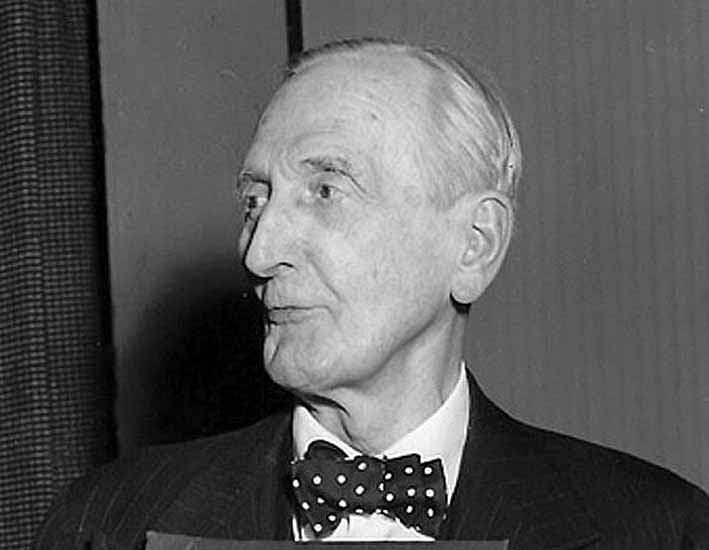
THIS IS YOUR LIFE - Charles Burgess Fry, sportsman, journalist, author and scholar, was surprised by Eamonn Andrews in the audience at the BBC Television Theatre, having been brought there by the sports writer Denzil Batchelor.
After attending Repton public school, CB won a scholarship to Oxford, where as well as being a brilliant scholar, he showed his potential to be the most outstanding all-round athlete of modern times. Following a successful career as a professional footballer, playing for Southampton in the FA Cup final, and time as a brilliant track and field athlete, equalling the world long jump record, CB turned to cricket, going on to captain both Sussex and England.
He was also a classical scholar who devoted 42 years of teaching to the famous Training Ship 'Mercury', had a distinguished career as an author and journalist, and worked for the cause of world peace in Geneva as a speechwriter for the Indian delegation at the League of Nations.
"I am much honoured. I was much struck by the amplitude and great skill of the programme"
programme details...
- Edition No: 5
- Subject No: 5
- Broadcast live: Sun 18 Dec 1955
- Broadcast time: 8.15-8.45pm
- Venue: BBC Television Theatre
- Series: 1
- Edition: 5
on the guest list...
- Jonathan - grandson
- William J Clarry
- Eric McGavin
- Dame Rachel Crowdy
- Lt Cdr Peter Varley
- Josephine Bradley
- Reg Sinfield
- Sydney Barnes
- Tiger Smith
- Sir Jack Hobbs
production team...
- Researchers: Peter Moore, Nigel Ward
- Writer: Gale Pedrick
- Director: unknown
- Producer: T Leslie Jackson
bowling up the cricketers
the programme's icon
This Is Your Life by Eamonn Andrews
Weekend Magazine reports from behind-the-scenes
Jonathan Fry, grandson of C B Fry, recalls his grandfather and this edition of This Is Your Life in an exclusive interview recorded in April 2012
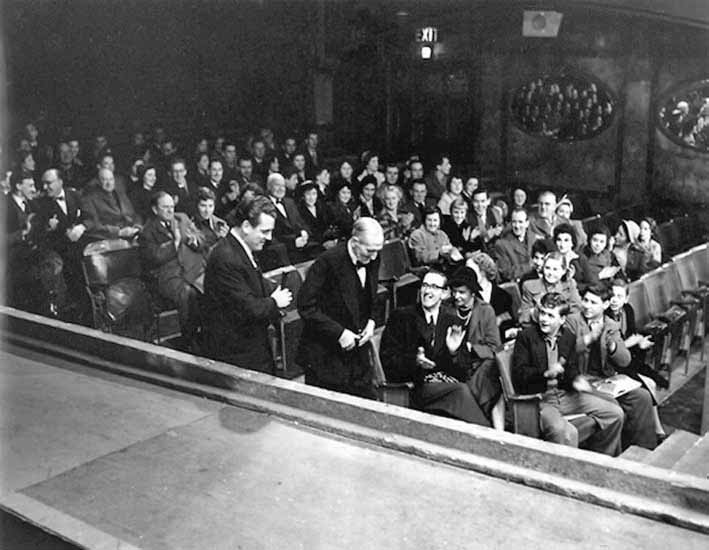
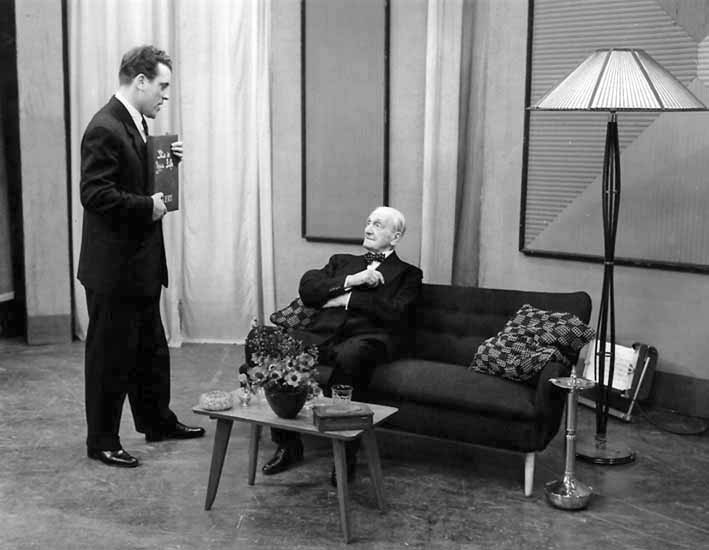
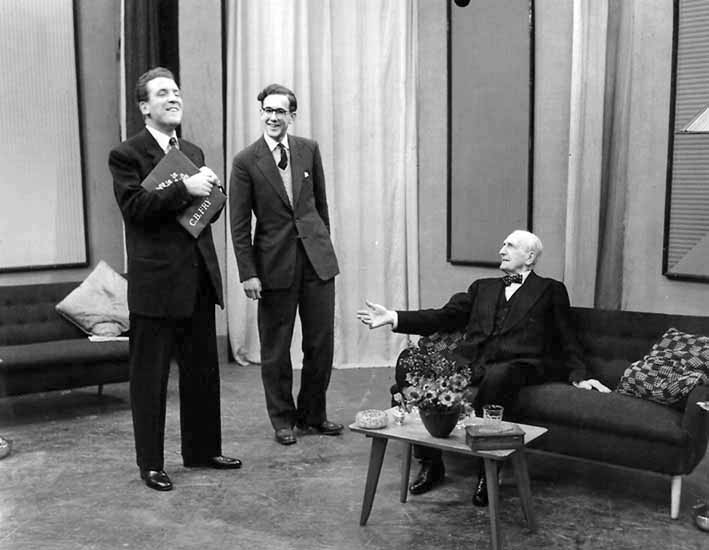
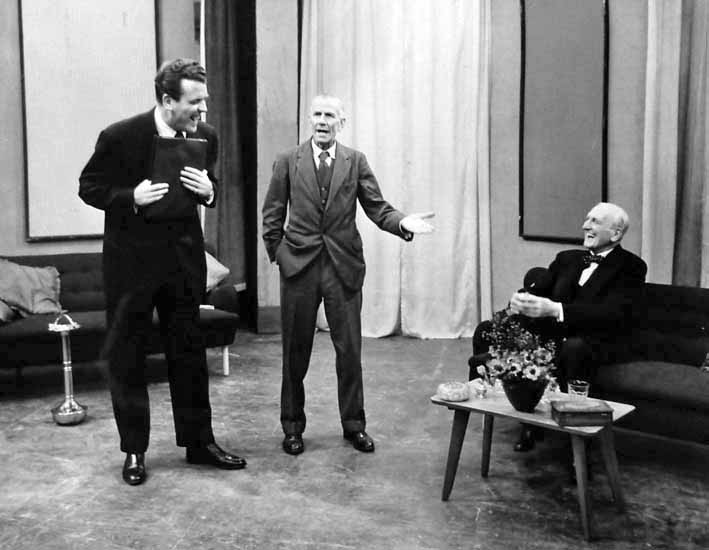
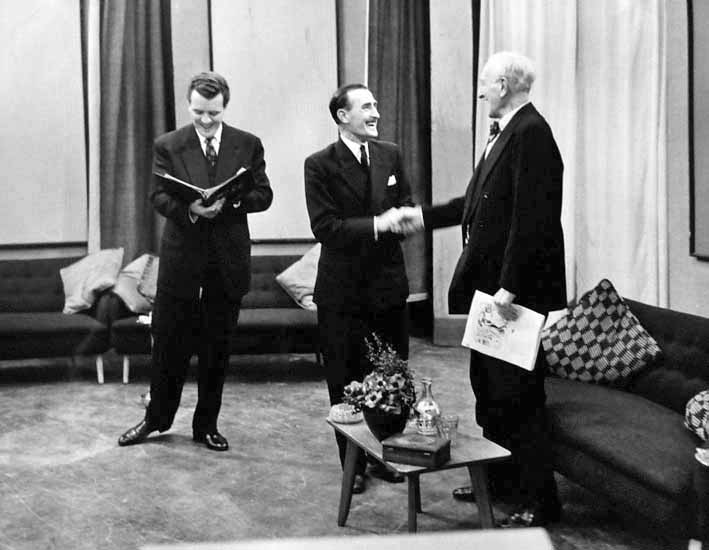
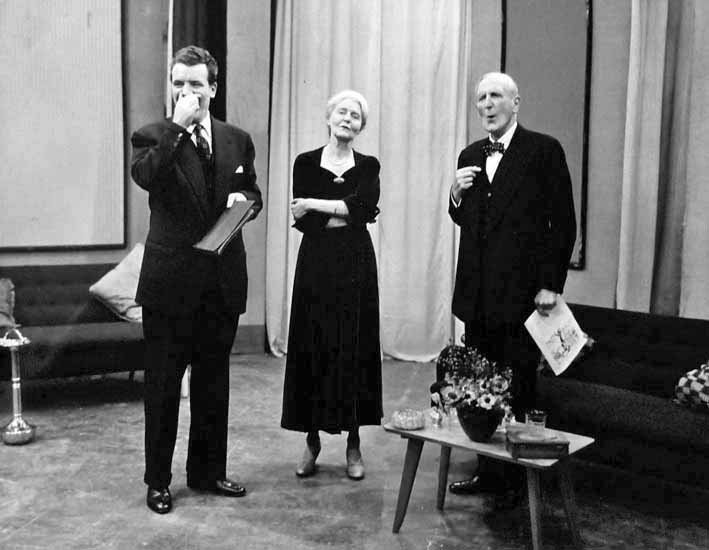
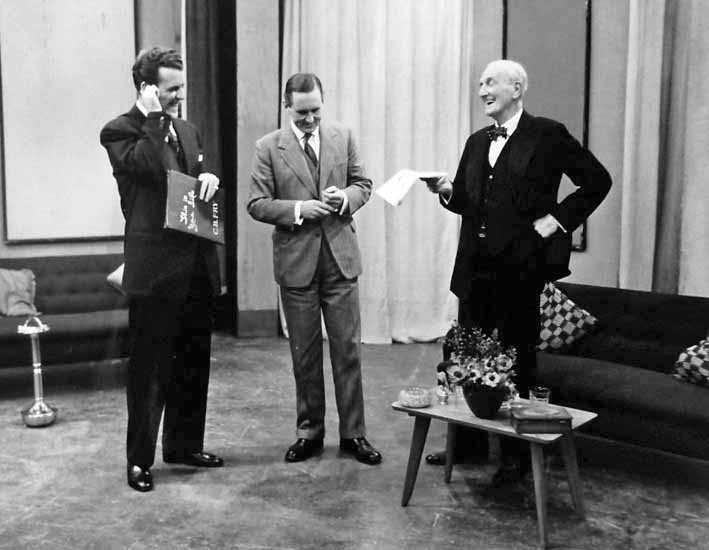
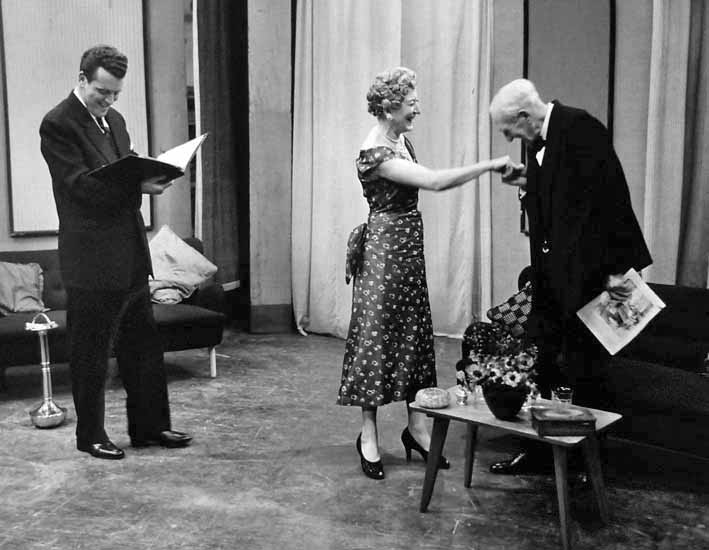
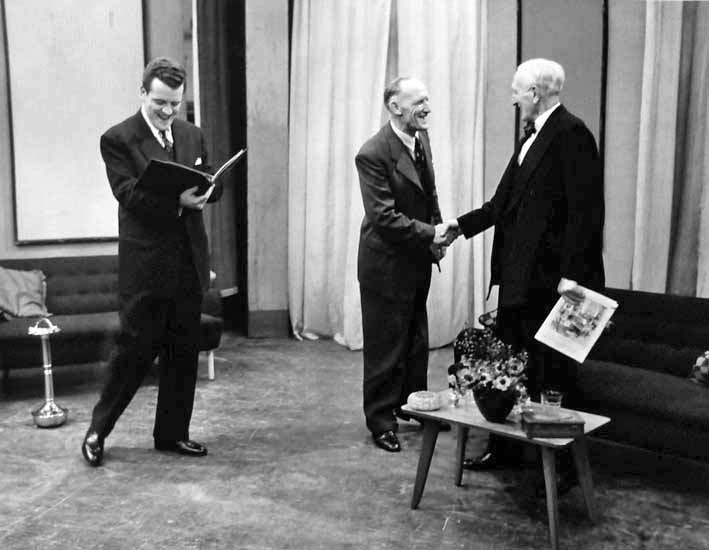
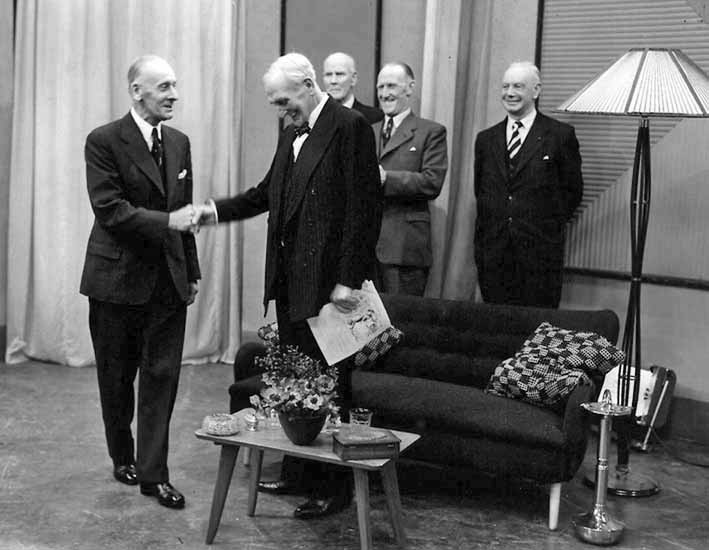
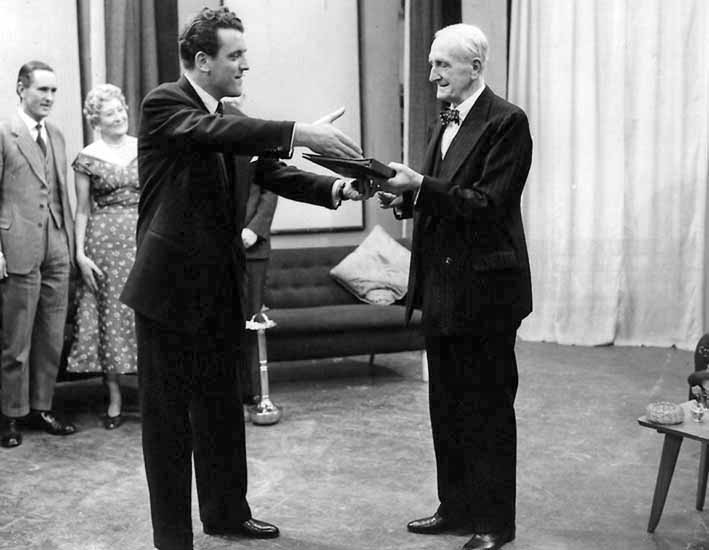
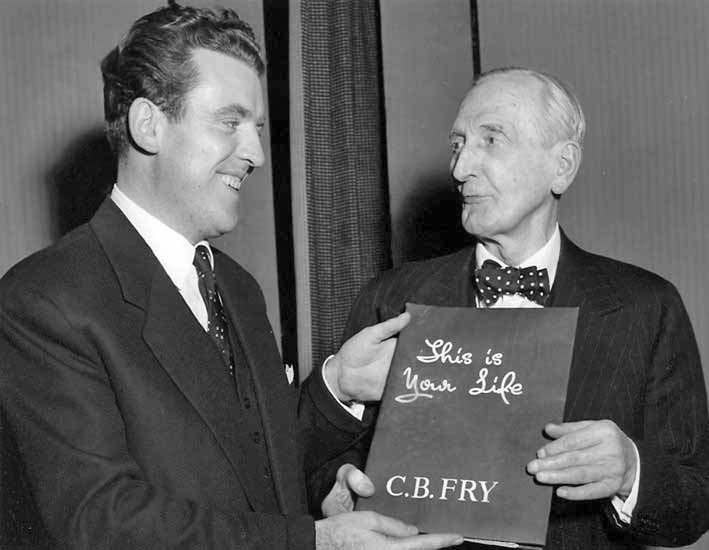
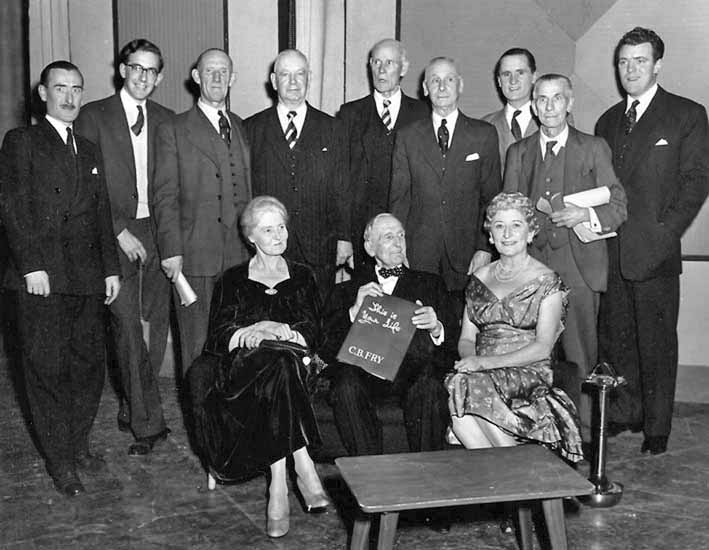
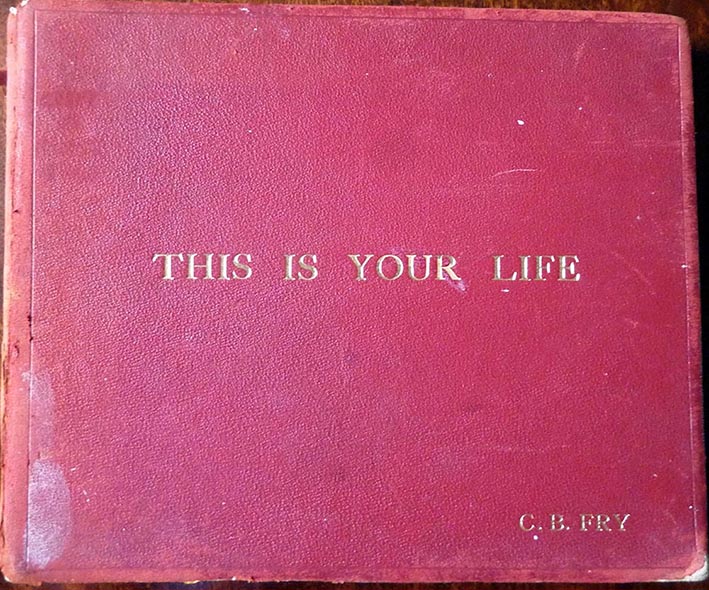
Photographs of C B Fry This Is Your Life - and a photograph of C B Fry's big red book
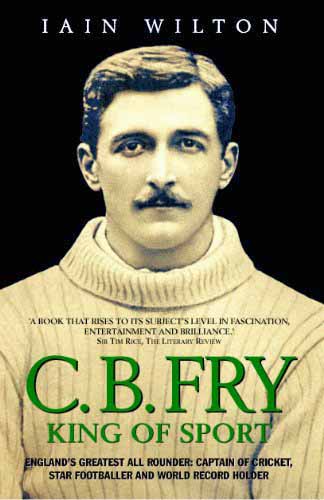
Two years later, the BBC gave CB another chance to look back on his life and, this time, he did so on television. On 18 December 1955, he arrived at the BBC Television Theatre, sat in the stalls and was surprised when the host plucked him out of the audience and asked him to appear on stage. As the host was Eamonn Andrews, and the programme was the newly launched This is Your Life, the surprise was a pleasant one – and the scene was set for Fry to re-live some of his finest moments and be reunited with many friends and former associates. Indeed, Faith, Stephen and Charis, as well as Denzil Batchelor, had been secretly working with the BBC's programme-makers to ensure that CB had a day to remember. Andrews's introduction reminded people of the remarkable life that Fry had led; 'Our guest tonight, ladies and gentlemen, is a brilliant classical scholar; he devoted 42 years of his life to the Training Ship Mercury; had a distinguished career as an author and journalist; and did devoted work in the cause of world peace at Geneva.' It was, Andrews continued, 'a unique and breath-taking record' – and he hadn't even mentioned Fry's sporting achievements. In fact, sport was not featured in the first part of the programme, which concentrated on CB's spells at Repton, Hamble and Geneva, plus his stint as a magazine editor in London's Southampton Street.
Appropriately, the first guest was CB's eldest grandson, Jonathan, who had not only followed in his footsteps by becoming a Reptonian but emulated his grandfather by proving to be an excellent classical scholar who won, like CB, both the Peile Prize for Greek prose and the Latham Prize for Classics.
The presence of the second guest, WJ Clarry, provided an equally poignant reminder of another aspect of CB's life – his long association with Fry's Magazine. Clarry had worked on the publication from the first edition to the last and had clearly been impressed by both the quality and quantity of CB's contributions – commenting that Fry had been 'a brilliant writer' who 'contributed hundreds of thousands of words a year.' He could also remember the extent of Fry's fame in the decade before the First World War. Within Britain, he said, CB was revered as 'The Admirable Crichton of Sport' – and he was famous on mainland Europe as well: 'His name was very well-known on the Continent. In fact, to them, there was only one British sportsman – CB Fry.'
After Clarry had reminded viewers about C.B.'s ten-year involvement in Fry's Magazine, Eric McGavin spoke about his links with Hamble, which had lasted even longer. Indeed, McGavin remarked that his own connection with C.B. had begun at a particularly early age: as he told Eamonn Andrews. 'We first met at the font' – because Fry had agreed to be his godfather.
While CB would have been pleased to see his eldest grandson, godson and former office-boy, he was probably delighted by the choice of the next guest. Introduced as 'the Commandant of the indispensable V.A.D.s of the First World War', Dame Rachel Crowdy arrived, looking as elegant as ever, and paid tribute to a friend and admirer of over thirty years' standing. She referred to his 'tremendous' contribution to the Mercury, his 'wonderful' work on Indian issues at Geneva and the outstanding quality of his dancing – although she added that he 'took such long and imperious strides that his partners found it very hard on stockings.' Asked to summarise Fry for the audience, she said that 'he has the very admirable trait of modest vanity' – and referred to 'the many lives which he [has] packed into one.'
Some of the same themes were mentioned by Josephine Bradley, who told Andrews how she had been struck by Fry's physical presence when he first arrived at her dancing school in 1934 – a meeting which had led to another friendship that was still going strong.
The remainder of the programme concentrated on the two subjects for which Fry was most famous – cricket and the Mercury. First, Peter Varley reflected on the school and the training which had enabled him to rise through the ranks in the Royal Navy. But while he praised CB's role, he stressed that 'a great deal of the spirit and inspiration we assimilated... was due to Mrs Fry.' It was not, he added, her only talent. Even in later life, she combined her interest in equestrianism – which had led, indirectly, to the Mercury's creation – with her determination to enforce discipline amongst the school's trainees. As Varley remembered: 'She was... a very fine horsewoman, and I remember once when we were forming fours – not too smartly, perhaps – she shouted to us, 'Don't push about there! A horse was disqualified for that yesterday!'
Similarly, Reg Sinfield recalled his time at Hamble – and one of the ways in which C.B. had maintained discipline – and helped to steer the programme away from Fry's sixty year association with the Mercury and towards his life-long interest in cricket. As both a Mercury old boy and a former Test cricketer, Sinfield ensured there was a smooth transition between the two – remembering how Fry had punished him for his mistakes in mathematics (by making him bowl in the Mercury nets) and revealing the advice that CB had given Charlie Barnett at Hamble shortly before the First Test in 1938.
Although Sinfield had played for England, he was not the most illustrious of the cricketers who appeared on the programme to pay homage to Fry, as CB was honoured by the presence of three former Test colleagues who rank as all-time England greats – an outstanding wicket-keeper ('Tiger' Smith), a brilliant bowler (Sydney Barnes) and the most prolific century-maker in cricket history (Sir Jack Hobbs). The programme maker's decision to invite Smith was perhaps an odd one, as he regarded Fry with respect rather than affection, but 'the fond reminiscing went on deep into the night' C.B. certainly seems to have enjoyed every aspect of his appearance on the programme (only the fifth This Is Your Life) – commenting that he felt 'much honoured' by the occasion.
Photographs taken by the programme-makers, for inclusion in the famous 'red book', show that CB remained exceptionally good-looking for a man approaching his mid-eighties. To the programme's millions of viewers, he appeared to be in fine fettle and, for the next six months, his behaviour suggested that another century might be within his reach.
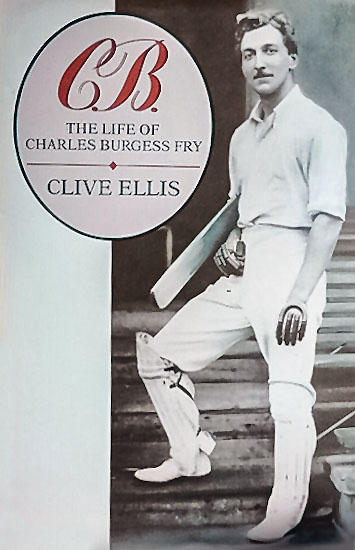
It was less than a fortnight later, on 18 December, when C.B. was chosen as the subject for This Is Your Life. It was the BBC's property at this time and presenter Eamonn Andrews selected his victim from the studio audience. Fry was accompanied by Denzil Batchelor and soon found himself on the familiar lightning trip along the dim corridors of a life-time.
They brought on William Clarry, who had been an office boy on Fry's Magazine, Eric McGavin, who was in charge of musical instruction on the Mercury, and Dame Rachel Crowdy, C.B.'s fellow-mover at the League of Nations and dancing partner. Then there was Josephine Bradley, his gifted dancing instructor and friend, and Reg Sinfield, the Mercury boy who had gone on to play cricket for England. For the grand finale the surviving members of the 1912 England side which Fry had led to victory in the Triangular series were reunited with their skipper – legendary names like Jack Hobbs, Sydney Barnes, Jack Hearne, Tiger Smith and Wilfred Rhodes – [Bigredbook.info editor: in fact Jack Hearne and Wilfred Rhodes, although mentioned in the programme's script, did not actually appear] and the fond reminiscing went on deep into the night. C.B.'s only slip was in confusing Reg Sinfield's voice with that of Jack Hobb's. 'How could I forget my chief hand', he said to Sinfield behind the scenes afterwards.
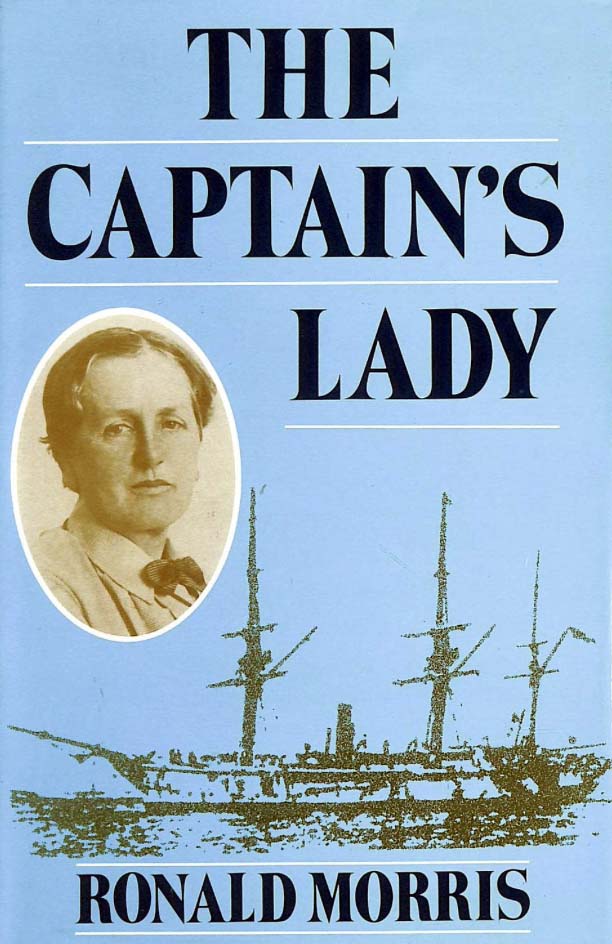
There was a brief return to the limelight in 1955 when he was guest of honour on the television programme, This Is Your Life.
The carefully staged pleasantries, the figures from the great man's past previously drilled in what to say, filled out the usual half hour of television time with the details of an astonishing career.
There seemed to be no shadows, no dark corners, to mar the impression that this had indeed been a life worth living.
Series 1 subjects
Eamonn Andrews | Yvonne Bailey | Ted Ray | James Butterworth | C B Fry | Johanna Harris | Donald Campbell | Joe BrannellyStanley Matthews | Henry Starling | Ida Cook | Lupino Lane | Hugh Oloff de Wet | Elizabeth Wilde | Robert Stanford Tuck